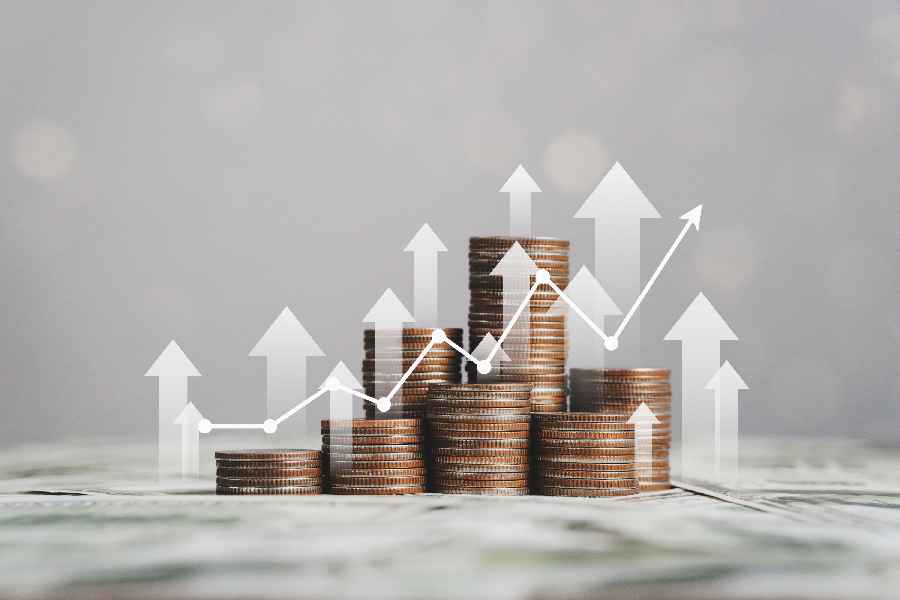trending
neon
Cirque du Soleil offers summer ticket deals
dining out
Celebs ditch the Strip for iconic Henderson restaurant
july 
trending
neon
Cirque du Soleil offers summer ticket deals
dining out
Celebs ditch the Strip for iconic Henderson restaurant
july 

Explore how U.S. policies influence global investments, fostering economic growth, and creating new opportunities for investors worldwide. From fiscal changes to technological regulations, U.S. strategies unlock significant potential for future growth




U.S. policies have a profound effect on global investment strategies. As one of the largest economies in the world, the U.S. serves as a barometer for investment trends, not just domestically but also internationally. The policies crafted by the U.S. government, including fiscal, regulatory, and monetary decisions, provide the framework within which investors navigate opportunities and risks. These decisions significantly shape the investment landscape, creating both challenges and opportunities.
Fiscal policies, including government spending and taxation, play a crucial role in shaping the investment environment. In recent years, U.S. fiscal policies have focused on stimulating economic recovery, especially post-pandemic. Government initiatives aimed at improving infrastructure, healthcare, and renewable energy have provided fertile ground for both domestic and foreign investments.
One example is the $1.2 trillion infrastructure package passed in 2021, designed to enhance U.S. transportation, broadband, and clean energy systems. Such policies encourage investments in sectors poised for growth, from clean tech to green energy. Investors around the world are looking to capitalize on these opportunities, recognizing the U.S. as a prime location for infrastructure development.
Tax reforms are another key aspect of U.S. fiscal policy that impact investment decisions. For instance, changes in corporate tax rates, such as those introduced in 2017, influenced corporate behavior and international capital flows. Understanding how these fiscal changes affect corporate profitability is essential for global investors.
Monetary policy in the U.S. is controlled by the Federal Reserve, and its decisions have far-reaching consequences for global financial markets. The interest rate decisions made by the Fed can influence everything from borrowing costs to investor sentiment. The current low-interest-rate environment has encouraged higher risk tolerance and has driven investment into stocks, real estate, and high-yield assets.
However, as inflation rises and the Fed begins to raise interest rates, the investment landscape will likely shift. A higher rate environment can impact everything from the housing market to the cost of capital for businesses. Global investors must be attuned to these changes, adjusting their strategies in response to U.S. monetary tightening.
Trade policies are central to the way the U.S. interacts with other countries, and these regulations shape global investment flows. Recent trade tariffs, the renegotiation of NAFTA, and the introduction of protectionist policies have altered the dynamics for U.S.-based businesses operating in international markets. U.S. investors must consider how these changes affect global supply chains and the potential for trade wars.
The Biden administration's policies, which emphasize rebuilding relationships with U.S. allies while engaging in strategic competition with China, also play a key role in reshaping the landscape for global investment. For example, sectors such as semiconductors, clean energy, and biotechnology are receiving more attention due to U.S. investment policies geared toward fostering domestic production.
The U.S. has long been at the forefront of technological innovation. Its investment in fields like artificial intelligence, biotechnology, renewable energy, and cybersecurity is central to unlocking future investment potential. Recent government initiatives aim to boost technological development and reduce reliance on foreign supply chains in key sectors.
For investors, understanding U.S. technological policy is essential for identifying high-growth opportunities. The U.S. government continues to invest heavily in R&D, particularly in areas related to climate change, AI, and space exploration. This creates a fertile ground for venture capitalists, private equity firms, and institutional investors looking to capitalize on these emerging sectors.
Moreover, regulatory frameworks surrounding technology, such as data privacy laws, impact how businesses operate. Investors should understand these frameworks to assess the risks and opportunities associated with U.S. tech investments.
Environmental policies are increasingly important in shaping investment trends, with global investors prioritizing sustainable assets. The U.S. government's focus on sustainability—such as the rejoining of the Paris Climate Agreement and the push for a carbon-neutral economy by 2050—presents new investment opportunities in clean energy, electric vehicles, and green infrastructure.
The U.S. Securities and Exchange Commission (SEC) has also increased its focus on environmental, social, and governance (ESG) criteria, which has led to a surge in ESG-focused investment products. These developments represent a shift in how investment decisions are made, with more emphasis placed on long-term sustainability rather than short-term profits.
Financial regulations in the U.S., including those enforced by the SEC, provide structure to the financial markets, ensuring that investors can engage in transparent and fair trading practices. The Dodd-Frank Wall Street Reform and Consumer Protection Act, passed after the 2008 financial crisis, introduced stringent regulations to prevent another economic collapse and to ensure stability within the financial system.
As financial regulations evolve, they influence the way investors approach risk management, portfolio diversification, and investment in certain sectors. U.S. financial laws impact global investors who wish to buy U.S. assets, whether they be stocks, bonds, or real estate.
The U.S. tax code is an integral part of the investment landscape. Corporate tax rates, capital gains taxes, and estate taxes all have significant implications for investment strategies. For example, changes to the capital gains tax rate can influence investor decisions on asset allocation, particularly in equities and real estate.
For international investors, understanding U.S. tax laws is crucial when considering cross-border investments. Policies related to tax treaties, withholding taxes, and tax advantages for U.S.-based investments all play a role in shaping the returns on investment. Global investors are increasingly focused on U.S. tax reforms, such as the Biden administration's proposals to raise corporate taxes, as these changes could impact profitability.
Geopolitical events—such as elections, international trade negotiations, and military conflicts—have a direct impact on the investment environment. U.S. policies play a significant role in shaping global geopolitics, and understanding these shifts is critical for investors.
For instance, the U.S.'s role in shaping global trade agreements, its strategic military alliances, and its stance on issues such as climate change, can all create ripple effects that influence investor sentiment. U.S. policies that affect global stability, whether in the Middle East, Asia, or Europe, shape long-term investment strategies
Explore how U.S. policies influence global investments, fostering economic growth, and creating new opportunities for investors worldwide. From fiscal changes to technological regulations, U.S. strategies unlock significant potential for future growth
the latest

U.S. GDP Growth Projections Amid Ongoing Supply Chain Issues
As the U.S. grapples with persistent supply chain issues, GDP growth projections for the coming years are being affected. This article explores the impact of these challenges on the economy and forecasts for 2025.

New Tax Reforms Expected to Stimulate Investment in Small Businesses
New tax reforms in the U.S. are designed to incentivize investment in small businesses, potentially driving economic growth and job creation. This article explores the expected impact of these reforms

Global Economic Concerns: How U.S. Policies Are Shaping the Future
As the U.S. continues to implement key economic policies, global markets are taking note. This article explores how these policies are influencing economic conditions worldwide and what it means for future growth

The U.S. Labor Market: Strong Jobs Report Signals Continued Economic Recovery
The latest U.S. jobs report shows strong gains in employment, signaling continued recovery in the labor market. This article explores the implications of these positive labor market trends for the broader economy

Inflation Remains a Challenge for U.S. Economic Growth in 2025
As the U.S. economy heads into 2025, inflation remains a persistent challenge. This article explores the causes of inflation, its effects on economic growth, and potential solutions for managing rising prices

Stock Market Volatility and Its Impact on Economic Stability
Stock market volatility has far-reaching effects on economic stability. This article explores the causes of stock market fluctuations and their impact on growth, investment, and consumer confidence

Biden's Economic Agenda: Key Policies to Shape Future Growth
President Biden's economic agenda focuses on sustainable growth through infrastructure investment, clean energy initiatives, and tax reforms. This article explores the key policies shaping the future of the U.S. economy

U.S. Reforms: What They Mean for Investors
Recent U.S. reforms are reshaping investment strategies, affecting markets, businesses, and investor confidence. Learn how these changes influence financial decisions

The Link Between U.S. Growth and Investment Strategies
Explore how investment strategies shape U.S. economic growth, influencing markets, businesses, and financial trends for long-term stability